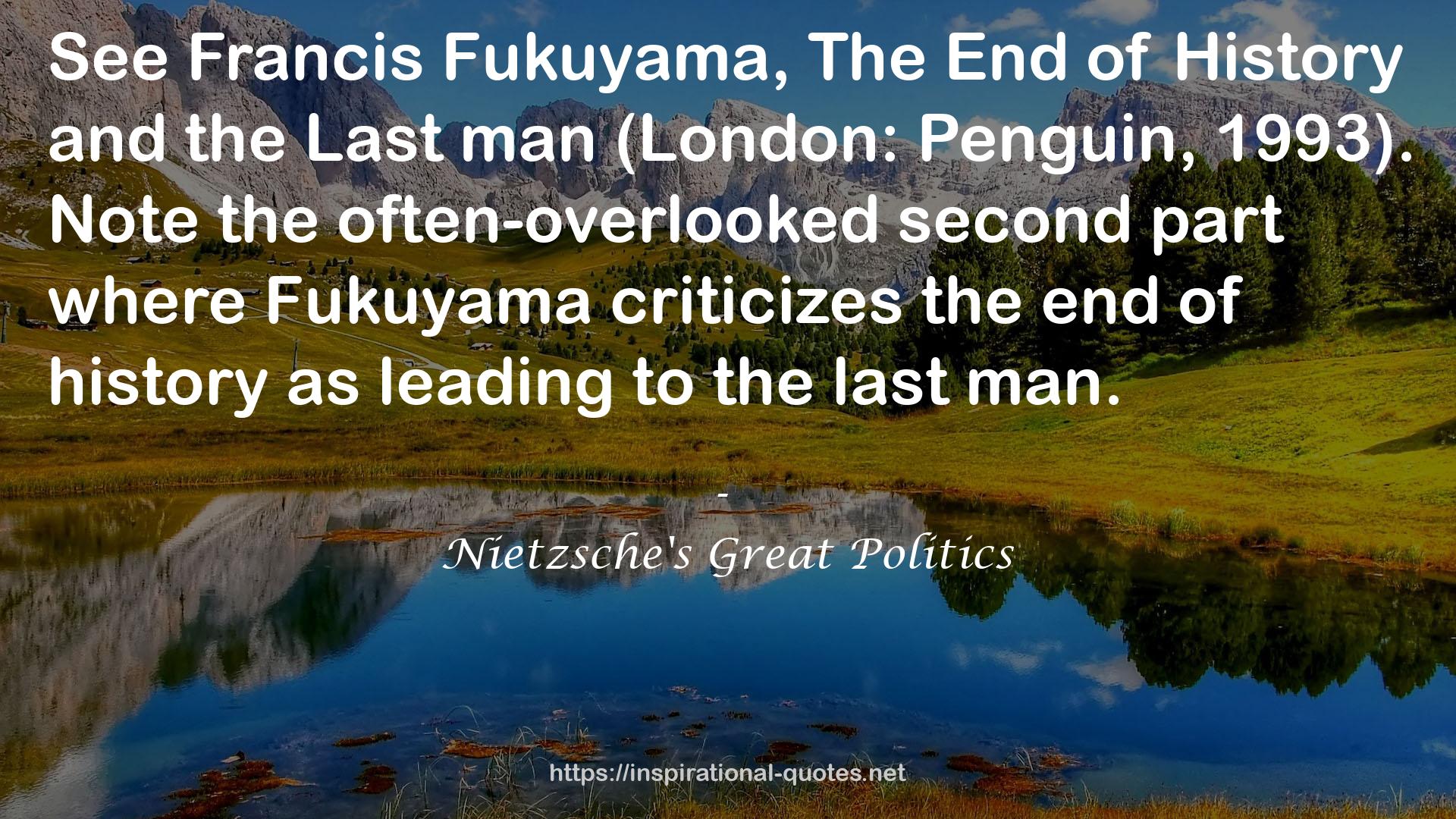Nietzsche's Great Politics QUOTES
SOME WORKS
- A Writer's Diary
- Machinehood
- Querido Diego, te abraza Quiela
- Baby, I'm Howling for You (Alphaville, #1)
- Endure (Defy, #3)
- Ghettoside: A True Story of Murder in America
- You're Equal: The antidote to hierarchy and narcissism. An elucidation of the mechanics of equality.
- A Short History of the Girl Next Door
- علاءالدین و چراغ جادو و علی بابا و چهل دزد
- Tattooed Souls (Tattooed Duet #2)

